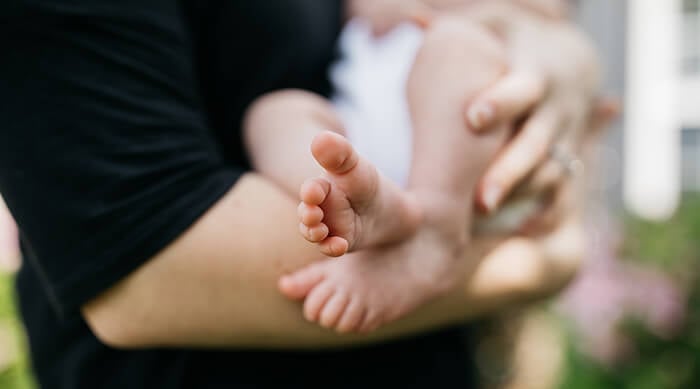There isn’t any research out there that definitively says you can drink wine while pregnant. Wine isn’t safer than any other type of alcohol, and there is no safe level of wine you can drink while pregnant.
It isn’t about timing, either. While the first trimester seems to be the most significant danger zone for risky behaviors like wine drinking, there is no safe time during pregnancy for alcohol consumption.
The guidance is consistent with public health groups like the American Academy of Pediatrics and the American College of Obstetricians and Gynecologists. To be completely safe, women who are pregnant or trying to become pregnant should abstain from alcohol completely.
That means no wine of any kind, at any time, unless your occasional drink is a non-alcoholic wine.
Is it safe to drink wine while pregnant?
It is not safe to drink wine or any alcoholic drinks while pregnant. The potential risks for the unborn baby are too great.
Some research suggests small amounts of alcohol may be fine early on in the pregnancy, but the data in those studies isn’t perfect. Information is self-reported or a review of available, anecdotal information.
Some studies point to the lack of evidence around moderate drinking while pregnant as reason enough that women can make their own risk assessments when it comes to alcohol.
That all said, there’s no way to determine a safe level of drinking in pregnancy. Any studies that could look at the issue definitively would be unethical. That would mean giving women wine to drink during a healthy pregnancy to monitor the effects on a child post-pregnancy.
That’s just not something we can do.
It’s best then to follow the available guidance out there and abstain from wine while pregnant. If you’re really craving a glass of wine, try alcohol alternatives instead.
Can you drink wine during the first trimester?
You cannot drink wine during the first trimester of pregnancy.
In fact, early pregnancy is the most dangerous time for a developing fetus and when it’s most at risk for miscarriage. Drinking wine while pregnant, especially in those early months, increases the risk of a miscarriage in those early months of pregnancy.
Wine while breastfeeding isn’t without its risks, either. Alcohol can affect a woman’s milk production and affect a baby’s sleep patterns.
According to the Centers for Disease Control and Prevention (CDC), moderate drinking may be safe for women who are breastfeeding. Moderate drinking in women is defined as one standard drink per day. That would be one 5 oz pour of wine.
The guidelines suggest waiting at least 2 hours — some say up to 3 — after that glass of wine to nurse to avoid passing alcohol on to the baby. The suggestion from the CDC says not drinking alcohol at all while nursing is better than moderate amounts.
Will one glass of wine hurt a baby?
There’s no way to tell whether one glass of wine will hurt a baby. We know that heavy drinking is linked to more severe birth defects and pregnancy complications.
While you likely won’t see those effects with just one glass of wine, all available guidelines out there suggest it’s best not to risk it. Choose non-alcoholic drinks, instead, to stay on the safe side. When it comes to fetal development, avoiding alcohol altogether is best.
Risks for Drinking Wine During Pregnancy
It can be challenging to measure the effects of alcohol and drinking wine during pregnancy. More severe health problems in infants are linked to heavy alcohol use and binge drinking while pregnant, but that doesn’t mean moderate drinking is without risk.
What are the risks of drinking wine while pregnant? The risks of drinking wine while pregnant include an increased risk of fetal alcohol spectrum disorders (FASDs), miscarriage, birth defects, and premature birth.
Fetal Alcohol Syndrome (FAS)
FAS is the most serious of the spectrum of disorders that can happen when a developing fetus is exposed to alcohol before birth. Alcohol consumed by the mother passes through the blood to the developing baby by the placenta and umbilical cord.
According to the CDC, there is no safe amount of alcohol and certain types of alcohol, like wine, aren’t any safer than the others.
Children with FAS may have:
- Problems with memory and learning
- Abnormal facial features (thin upper lip or smooth surface between the lip and nose)
- Central nervous system problems such as attention and behavioral problems
- Low birth weight
- Small head size
Four additional disorders make up the FASD with various levels of harmful effects:
- Partial fetal alcohol syndrome (pFAS): This syndrome is a precursor to FAS. A child may have some of the markers for FAS, but they’re not as severe. Isolated binge drinking incidents have been linked to both FAS and pFAS.
- Alcohol-related neurodevelopmental disorder (ARND): This disorder may cause problems with learning, especially in math, and issues with impulsivity. A diagnosis is made after a child reaches three years old.
- Neurobehavioral disorder associated with prenatal alcohol exposure (ND-PAE): This disorder affects three primary areas: thinking and memory, behavior, and daily living. Daily living includes a child’s social skills and how they’re able to handle small tasks.
- Alcohol-related birth defects (ARBD): Physical defects that affect the organs, bones, or hearing without any additional neurological defects fall under this category.
A diagnosis of any of the FASDs is based on a doctor’s observation. Sometimes that means self-reporting from a parent that there was alcohol consumption during pregnancy, but not always.
An early diagnosis can make a difference in accessing support services that could help a child address any developmental delays.
Increased Miscarriage Risk
Drinking alcohol in pregnancy, especially early on, increases a pregnant woman’s miscarriage risk. While even moderate drinking is associated with an increased risk of miscarriage, that risk is amplified with every drink beyond what’s considered moderate levels.
Some studies differentiate between the types of alcohol consumed and the inherent risk — drinking spirits seems riskiest in early pregnancy — but most caution against all alcohol. There’s no safe limit when it comes to drinking wine and miscarriage risk.
Premature Birth
Exposure to alcohol during the first trimester, in particular, increases the odds that a baby will be born preterm or before 37 weeks of pregnancy. Some studies link premature birth in males to alcoholism later in life.
Babies born prematurely are at a higher risk for:
- Learning disabilities
- Vision and hearing problems
- Weakened immune systems
- Behavioral problems
- Psychological problems
This is on top of the burden and stress of additional care often needed for babies born preterm.
Low Birth Weight
Drinking wine during pregnancy could cause low birth weight. Low birth weight can lead to a variety of complications in an infant and developing child. Those include:
- Cognitive deficits
- Growth delays
- Motor delays and disabilities, such as cerebral palsy
- Behavioral problems
- Psychological problems
Babies born prematurely with a very low birth rate may need extended hospital stays in a newborn intensive care unit (NICU) for special care.
Stillbirth
Alcohol consumption during pregnancy can cause a variety of concerns that aren’t apparent until a child reaches school-aged levels. In the most devastating cases, there is evidence that excessive alcohol use can cause stillbirth.
Babies born to mothers who had consumed alcohol during pregnancy are also at a higher risk of sudden infant death syndrome (SIDS).
While it’s difficult to remove environmental factors and the overall health of the mother in studies that look at the most severe effects of alcohol in pregnancy, the evidence is clear. It is safer to abstain from alcohol, even wine, during pregnancy than to try to figure out safe amounts.
Simply put, it’s best not to drink wine while pregnant.
Real Wine You Can Drink While Pregnant
Mocktails aren’t your only option if you want the occasional glass of wine while pregnant.
What kind of wine can you drink while pregnant? The only kind of wine that is safe to drink while pregnant is a non-alcoholic or dealcoholized wine.
Is non-alcoholic wine safe during pregnancy? Yes, non-alcoholic wine is generally considered safe during pregnancy. Its alcohol content is about the same as a bottle of kombucha, which means it poses no known risk to the fetus. However, if you're unsure, consult with your OB/GYN.
Non-alcoholic wine starts just like the real thing but goes through an additional process to have the alcohol removed. The result is a delicious wine that contains less than 0.5% alcohol by volume. That’s the threshold for the Surgeon General for pregnancy warning labels.
For some perspective, 0.5% ABV is a similar level to kombucha or some fruit juices that contain trace amounts of alcohol thanks to natural fermentation.
We always recommend talking to your healthcare provider before adding anything new to your diet, even if it’s dealcoholized wine. For many expecting moms, Surely’s non-alcoholic wine has become a safe way to participate in social gatherings or, more simply, enjoy wine again.
Sources
- Pregnancy and alcohol: occasional, light drinking may be safe
- Making Sense of Advice About Drinking During Pregnancy: Does Evidence Even Matter?
- Week-by-week alcohol consumption in early pregnancy and spontaneous abortion risk: a prospective cohort study
- Are Low-to-Moderate Average Alcohol Consumption and Isolated Episodes of Binge Drinking in Early Pregnancy Associated with Facial Features Related to Fetal Alcohol Syndrome in 5-Year-Old Children?
- Fetal Alcohol Syndrome
- Alcohol Use in Pregnancy and Miscarriage: A Systematic Review and Meta-Analysis
- Volume and type of alcohol during early pregnancy and the risk of miscarriage
- Maternal Alcohol Use During Pregnancy and Associated Morbidities in Very Low Birth Weight Newborns
- Effects of Premature Birth on the Risk for Alcoholism Appear to Be Greater in Males Than Females
- Low birth weight and its associated risk factors: Health facility-based case-control study
- Prenatal Alcohol Exposure and Miscarriage, Stillbirth, Preterm Delivery, and Sudden Infant Death Syndrome





![9 Creative Baby Shower Mocktails [For Wine Lovers & More]](https://dropinblog.net/34240221/files/featured/baby_shower_Mocktails.jpg)
